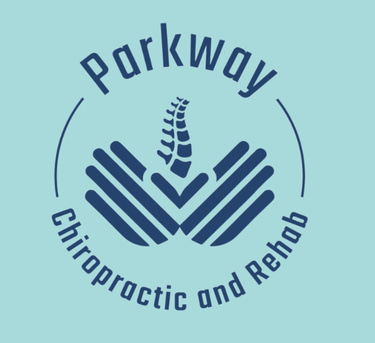COMMONLY ASKED QUESTIONS
DO I GET ADJUSTED ON THE FIRST VISIT?
The main focus of your first visit is to identify the underlying cause of your issue. We take the necessary time to thoroughly assess how your body functions and create a personalized treatment plan. We also use this time to determine if further imaging, such as X-rays or MRIs, is necessary to ensure it is safe to adjust you. Your adjustment will typically take place during your second visit, after you and your doctor have reviewed the Report of Findings and discussed the plan to help you achieve your goals.
HOW MUCH DOES EACH ADJUSTMENT COST?
No Insurance
Easy! Our Care Plans and simple payment arrangements have helped over 1,000 people, and they will work great for you too!
Health Insurance
We work directly with health insurance providers and handle all billing on behalf of our patients. We verify each patient’s coverage through our database to ensure their plan is accepted.
Auto Injury
Auto-related injuries are covered at 100%. Even if you were at fault or were a passenger, you can get the care you need, and it costs you nothing. This is great for you!
All we need is your claim number, insurance, and attorney info.
Work Injury
Work-related injuries are covered at 100% for up to 12 weeks.
All we need is your claim number and Work Comp insurance info.
Medicare
Medicare Part B covers spinal adjustments performed by a chiropractor to correct subluxation, but only when deemed medically necessary.
Medicare DOES NOT cover other services or tests ordered by a chiropractor, such as X-rays or Non-Surgical Spinal Decompression Therapy.
After you meet the Part B deductible, you pay 20% of the Medicare-approved amount.
For more details, visit: www.Medicare.gov/coverage/chiropractic-services
Flexible Spending Accounts with Parkway Chiropractic & Rehab
Flexible Spending Accounts (FSAs) are employer-sponsored benefit programs that allow employees to set aside pre-tax dollars from their salary to pay for qualified expenses. FSAs offer a tax-advantaged way for employees to pay for certain out-of-pocket expenses, such as healthcare and dependent care.
BENEFITS OF FLEXIBLE SPENDING ACCOUNTS
One of the biggest benefits of an FSA is that they can be used to pay for a wide range of expenses. For example, Healthcare FSAs can be used to pay for deductibles, copayments, prescriptions, and other medical expenses that are not covered by insurance. Dependent Care FSAs can be used to pay for childcare, after-school programs, and other dependent care expenses. Some FSAs even allow you to use funds for transportation and parking related to healthcare appointments.
LIMITATIONS OF FLEXIBLE SPENDING ACCOUNTS
One major limitation of FSAs is that they are "use-it-or-lose-it" accounts. This means any funds you contribute during the plan year must be used by the end of the year, or they will be forfeited. However, some employers offer a grace period or carryover provision, allowing you to use any unused funds from the previous year for a set period or carry over a limited amount to the next year.
Another limitation is that FSAs are subject to annual contribution limits. For 2022, the limit for healthcare FSAs is $2,750, and for dependent care FSAs, it's $5,000 per household. It's important to keep these limits in mind when planning your contributions.
TIPS FOR MAXIMIZING YOUR FSA BENEFITS
To make the most of your FSA, it's important to carefully plan your contributions and expenses. Here are some tips:
Estimate your expenses: Before enrolling in an FSA, take some time to estimate your expenses for the upcoming year. This will help you determine how much to contribute.
Take advantage of employer contributions: Some employers offer FSA matching contributions, helping you save more on your qualified expenses.
Use your FSA funds wisely: Make sure to use your FSA funds before the deadline, and try to spend them on eligible expenses you know you'll incur during the year.
Keep good records: Track your FSA expenses and receipts in case you need to submit documentation for reimbursement or tax purposes.
WHAT IS THAT "CRACKING" SOUND DURING AN ADJUSTMENT?
When you hear a cracking sound during a chiropractic adjustment, it’s actually the release of gas bubbles from the fluid in your joints. This happens when the joint is stretched, and the pressure changes within the joint space, causing the gas to escape, which creates the popping or cracking noise. It's similar to the sound you hear when you crack your knuckles. The sound itself isn’t harmful and doesn’t necessarily indicate that the adjustment is working or not—it’s just a natural part of the process for some people.
I’M PREGNANT. IS IT SAFE TO GET ADJUSTED?
Yes! Most of our doctors are certified in the Webster technique, which is specifically designed for prenatal conditions. Chiropractic care is highly beneficial for women to relieve and prevent discomfort associated with pregnancy, and it can help create a more comfortable environment for both mom and baby.
DO YOU ADJUST KIDS?
Yes! Children's bodies are constantly growing and changing, and chiropractic care can help support proper alignment and nervous system function during these crucial stages. This can improve posture, boost the immune system, enhance sleep quality, and even support concentration and behavior. The adjustments for children are very gentle and tailored to their specific needs, ensuring both their safety and comfort.
Parkway Chiropractic and Rehab
© 2024. All rights reserved.
⏰ Office Hours
🌟 Monday to Friday:
🕘 9:00 AM – 6:00 PM
🌟 Saturday:
🕘 9:00 AM – 12:00 pm


